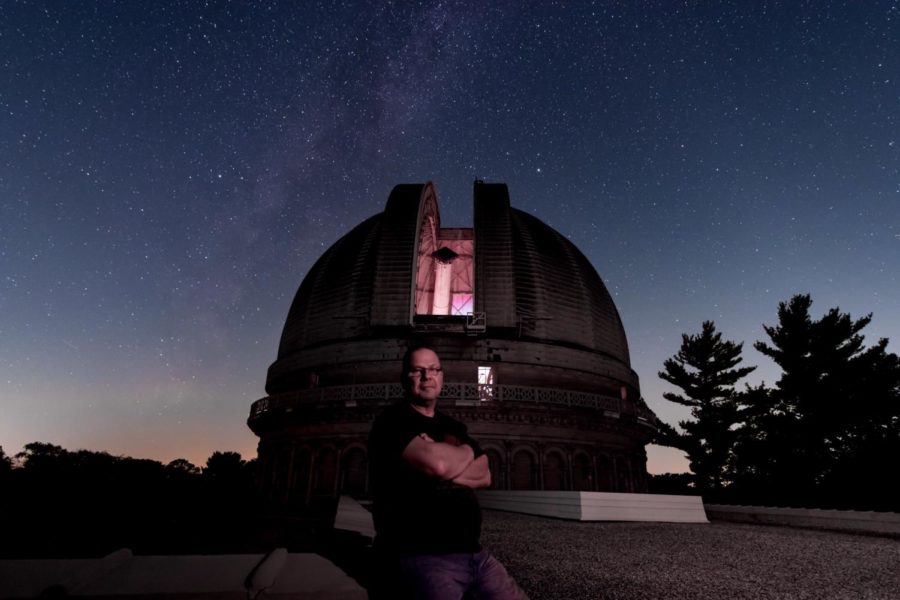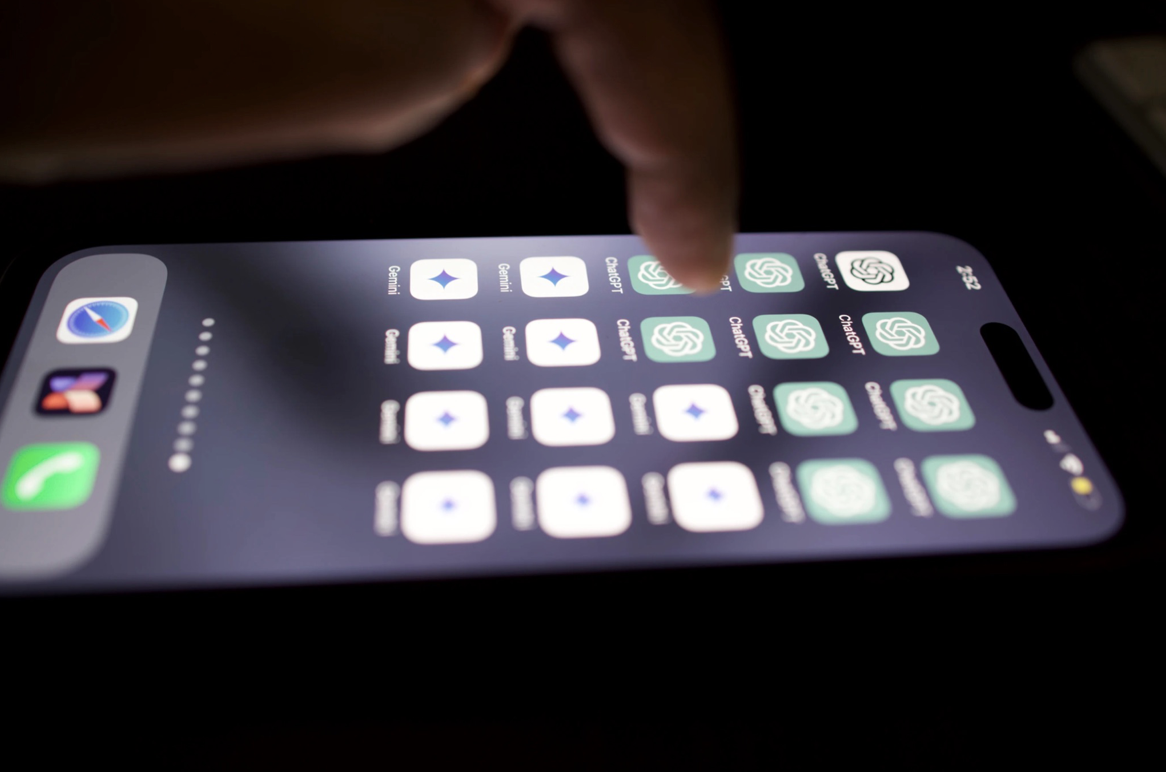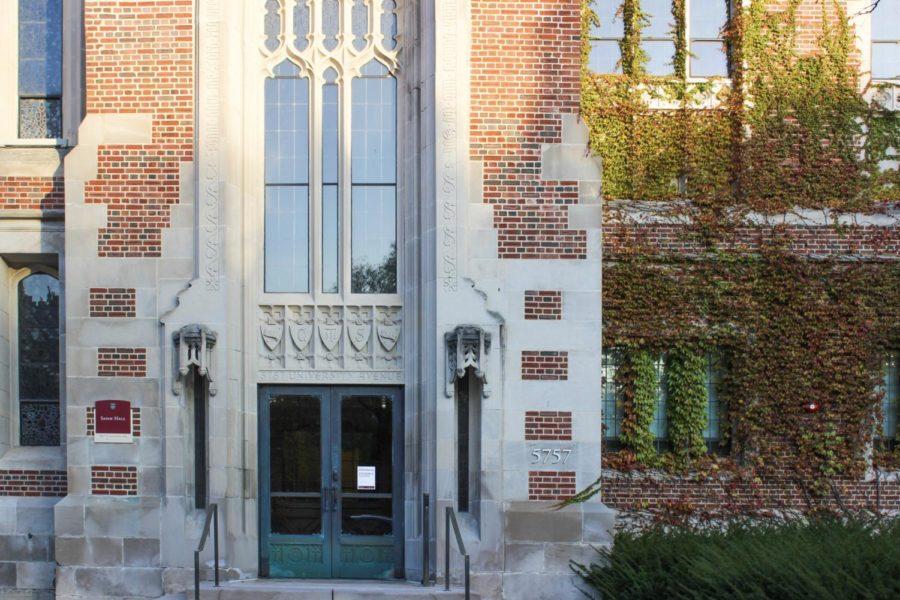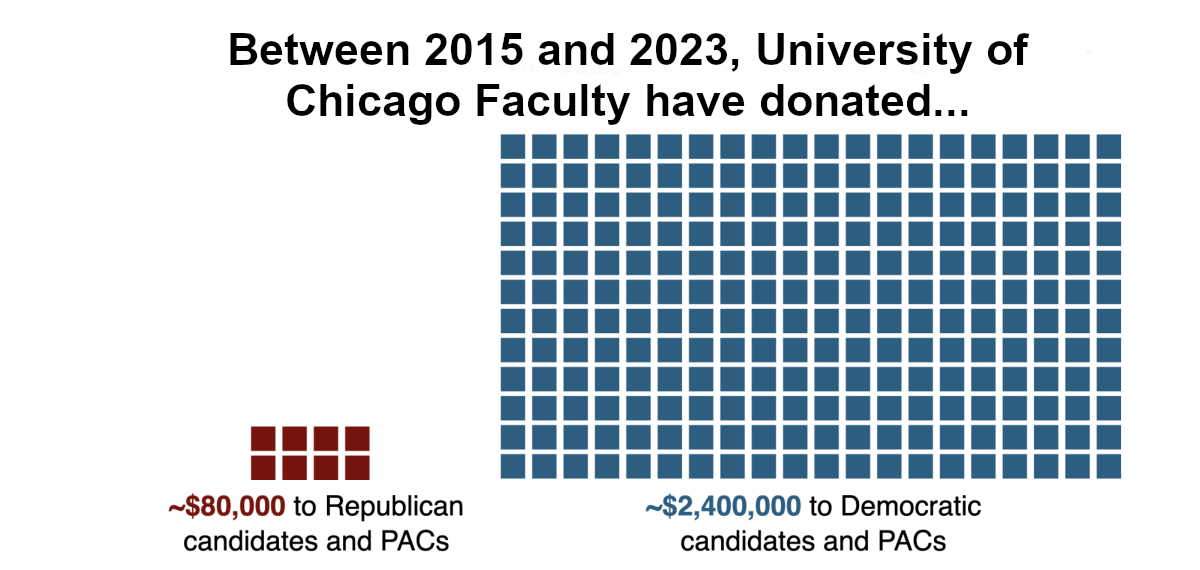The building has been cleared out; gates surrounding the property have gone up; the community is still reeling, but continuing to rally.
For an institution that was meant to reveal the secrets of the universe, the future still remains quite murky.
The Yerkes Observatory in Williams Bay, Wisconsin, opened in 1897 under the auspices of the University of Chicago 80 miles away. The astronomer George Ellery Hale founded the observatory to house the world’s largest refracting telescope, which Hale constructed earlier that decade.
Over the decades following its opening, astronomers conducted research at Yerkes on topics from star pairs to the rigidity of Earth’s surface. Two famous astronomers who spent time at the observatory were Edwin Hubble (S.B. 1910, Ph.D. 1917), who researched galaxies beyond the Milky Way, and Subrahmanyan Chandrasekhar, who won the 1983 Nobel Prize in Physics for his research on stars.
As astronomy advanced, the observatory became mostly obsolete from a research standpoint. The University’s astronomy department moved entirely to Hyde Park in the 1960s, but the observatory remained open and in operation. Scientists continued conducting research and working on projects there. This included the High-resolution Airborne Wide-band Camera (HAWC), a camera meant for a NASA observatory.
The observatory also played a major role in its community and the surrounding Geneva Lake region in Wisconsin. From frequent tours to educational outreach programs to local community initiatives, the staff at the observatory worked to bring astronomy to the local population. Yerkes became a beloved Williams Bay institution—even making it into the town’s crest.
As of October 1, the Yerkes Observatory has shut its doors for good.
The University announced the observatory’s closure in March, citing the cost of operating the facility, which it said at the time did not “contribute directly to the research mission of the University of Chicago…. The University’s operation of the facility could no longer be justified from a programmatic or cost standpoint.”
At the same time, it called for expressions of interest in guiding the future of the observatory. This indicates that the University’s departure from Yerkes might mean that the beloved observatory has some life left to live.
But the summer came and went without tangible progress updates from the University.
Genevans and science buffs alike differ on whether the University has said and done enough about the efforts to save Yerkes. The University has even been criticized for keeping too quiet about the observatory’s future, at least until its recent statement in September.
Yerkes’s Final Months
Yerkes Observatory intern Chris Mathews told The Maroon that, until the beginning of August, the observatory operated as usual.
“It was always present [this past summer] that the observatory was going to close,” Mathews said. “But I was really amazed and grateful for the fact that it was very normal, and everyone went about doing an excellent job running summer camps, and Star [viewing] Parties, and we did more work for development this year of the IDATA [Innovators Developing Accessible Tools for Astronomy] project.”
Mathews is a third-year at the University of Wisconsin–Whitewater and a founder of Save Yerkes, a student-run group formed earlier this year to keep the observatory open.
Mathews, who is legally blind, got started at Yerkes by helping out with the observatory’s early work to make astronomy accessible for blind students. This included providing feedback on tactile images, objects that allow blind students to understand astronomical concepts, such as the differences between types of galaxies.
He heard about the IDATA project in high school, which was pitched to him as being able to make use of the telescopes Yerkes has access to remotely more accessible for blind students, which would advance his previous work for the observatory. Since January 2017, he has worked as an undergraduate mentor on IDATA, developing hands-on activities and working with students across the United States on IDATA.
Mathews said the observatory began to deal with the closure in earnest in August. The building had to be cleaned out, and donated items for the houses on the property needed to be returned.
“There was this [sense of] impending loss,” Mathews said.
The night before he left Yerkes, Mathews sat on the observatory’s back steps. “I kind of just realized, this might be the last time I could go sit on the back steps [of Yerkes]…[now] I can’t go into the building.”
Dan Koehler, a now-former Yerkes staff member, told The Maroon that the observatory’s last summer was jam-packed—more so than past summers.
Koehler has commuted 30 miles to Yerkes for work since 1992, when he began working there part-time. He began full-time work at the observatory in October 2015.
Since then, Koehler served as the observatory’s director of tours and special programs, helping coordinate initiatives such as corporate events in the Yerkes space and frequent tours to the general public. He also directed the community’s yearly Starlight Festival, which celebrated astronomy and space at the observatory.
“We’ve been…much busier than we normally would have been,” Koehler said.
He attributed this to the observatory staff’s marketing efforts, the impending closure, and his own involvement in the community.
The Sound of Silence
Has UChicago shared too little about Yerkes’s future?
While UChicago representatives attended a Williams Bay board meeting in March and held its own community meeting in May, some of those invested in Yerkes’s future believe the University has not been forthright with its plans.
The Save Yerkes’s petition called for keeping Yerkes open at least through the end of 2019, amassing thousands of signatures. Mathews resigned that there isn’t much that can be done with the petition anymore given Yerkes’s closure. The group also ran two events in Williams Bay, to encourage people to publicly share stories and memories about the observatory. (Residents have since shared stories on social media and in the local newspaper.)
“I think the University needs to talk to the community,” Mathews told The Maroon. “I think people need to know, officially, rather than from a website, what’s going on…. I think because there’s so much discontentment in the community, no matter what is said by the University, there’s going to be pushback. But I think saying nothing has really hurt people more and that’s why we are where we are [with the anger within the community].”
Koehler indicated that Yerkes staff members were also kept in the dark about the observatory’s fate.
“Everyone asks [during the last few weeks at the Observatory] what’s going to happen [to Yerkes]…we have no idea. So they’re kind of frustrated by that point. Angry with the University for making the decision that it’s made…. We explain it to the extent that we can.” Koehler said.
He added that the lack of engagement doesn’t mean that nothing was happening, but that he has not seen or heard anything.
“There’s a suspicion, I guess, that something is going on in the background that we’re not aware of…. As to what they plan to do with the property…we have very little information to go on,” he added.
Community Efforts
Over the past few months, a group of now-former Yerkes staff made concrete progress towards salvaging Yerkes’s educational programming.
Yerkes’s educational outreach team created the Geneva Lake Astrophysics and the Science, Technology, Engineering, the Arts, and Mathematics (STEAM) nonprofit (GLAS) to maintain Yerkes’s educational programs even after the observatory closed its doors.
“The purpose of [the nonprofit]…is to ensure the viability of programs formerly operated by Yerkes Education Outreach [Yerkes’s umbrella brand for its educational programs], preserve the mission and goals of YEO, and seek out new opportunities and funding sources to secure the long-term sustainability of GLAS programs,” the group says on its website. Former Director of YEO Kate Meredith leads the group.
Meredith told The Maroon by phone that while teaching science in Wisconsin years ago, she started teaching an astronomy class that sparked her interest in the field. A retired UW–Whitewater professor connected her to Yerkes when she moved out of the county, allowing her to learn more about astronomy and continue teaching it. Meredith eventually wrote curricula for astronomy classes as well.
Meredith began work at Yerkes on a semi-regular basis, helping the observatory secure various grants. When Yerkes lost financial backing from NASA, Mederith moved onto the Yerkes property with her children temporarily to search for new funding sources for YEO. She eventually procured funding for YEO from the national IDATA program and other sources. She then turned her focus to making Yerkes programming more accessible to students in the region, including Spanish speakers.
Three years ago, she became Yerkes’s full-time educational director.
Meredith told The Maroon that GLAS cannot run many of YEO’s programs without the physical Yerkes Observatory building, especially programs involving the observatory’s telescopes. Programs such as star viewing parties and high school events will be able to continue. GLAS hosted its first star-viewing party on September 7, and it will continue these parties along with some YEO events including IDATA and a high school scholars program.
The group has called for donations on Facebook and its website, but according to Meredith, GLAS cannot launch a proper crowdfunding campaign until the group receives federal 501c3 status.
The University has let GLAS keep the money from some of the programs that YEO ran this past summer, including a viewing party for the Perseids meteor shower. The University has publicly acknowledged GLAS in a statement directly referencing a community-based Yerkes initiative, while highlighting that it has no affiliation with the group.
“Educational outreach programs previously offered through the University of Chicago’s Yerkes Observatory will move from the observatory…. [T]hey will be operated by Geneva Lake Astrophysics and STEAM, Inc. and will no longer be supported by the University of Chicago,” the University said in a statement on August 15 posted on its Yerkes Updates page.
Meredith said that UChicago has helped GLAS: “Everything that was historically part of Yerkes Educational Outreach, all the materials, the small telescopes…all the computers—everything that was ever purchased with grants funding, we’re allowed to take.”
In mid-October, Meredith said that GLAS had received some support from the University, including financial support for the storage pod.
GLAS currently has office and storage space in a new location in Williams Bay. A local astronomy organization lent GLAS a portable planetarium system for six months. A donor gave $40,000 to GLAS which is helping support its two employees, Meredith and Deb Kaelbli, until more funding from IDATA and other sources comes in.
Meredith also noted that she was able to find a new home for her family in Williams Bay after they moved out of their house on the Yerkes grounds.
Mathews praised GLAS and is glad the educational programs he helped coordinate as a Yerkes intern will continue. At the same time, he believes it won’t be able to fully replicate the Yerkes educational programs as they were run at the observatory: “These opportunities for students aren’t going to be the same in a rented room in a library. You can’t go up and look at a telescope…. [Meredith] had to decide what’s important [and feasible] enough to move [from YEO to GLAS].”
Another community-based group is focusing on reopening the physical observatory.
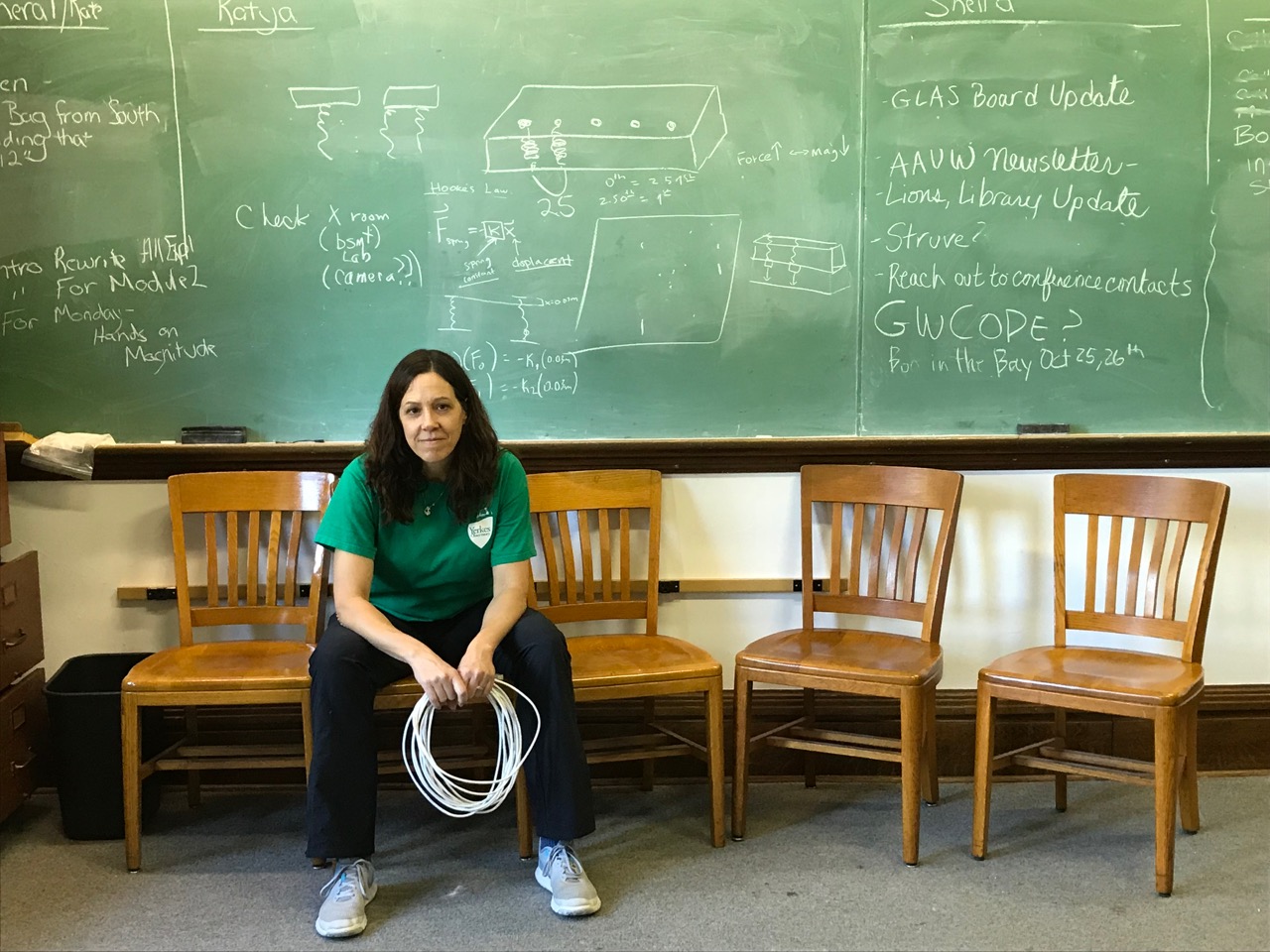
The Yerkes Future Foundation (YFF)—a group formed by Williams Bay Village residents in May that responded to the University’s call for proposals—remains positive about the future of the observatory, as well as the University’s actions.
It helps that the organization can now be forthright about engaging in talks with UChicago. In a detailed statement released just two weeks before the observatory’s closure, the University said, “Talks are continuing with the Yerkes Future Foundation, a nonprofit organization located in Williams Bay.”
“To their credit, the University has been very cordial, very responsive…. I have no issue with how they have communicated or managed with the Yerkes Future Foundation,” Foundation Chair Dianna Colman told The Maroon in a phone interview around two weeks after the observatory closed. (Colman previously declined to comment directly on the content of YFF’s discussions with the University, saying they are confidential.)
Colman lives right outside of Williams Bay Village. She has a background in corporate finance and an M.B.A. from Harvard University.
Her involvement with YFF is just one of the areas she’s been involved with working to help out the Geneva Lake region. In 2013, she was involved with efforts to fund the purchase of a fire boat for the region’s fire departments to use on Geneva Lake.
Colman acknowledged the community’s concerns about not getting enough information from the University: “I’m not sure that [sharing more] would have served a good purpose…. There’s no alternative plan or anything weird from the University [behind the silence]. I think that they’re being quite genuine, in that they want someone to take this over that will protect it, preserve it, nurture it, expand it, make it an amazing place again.”
Colman said that YFF has been talking with potential donors since late August to garner support. While the foundation has yet to be granted nonprofit status—Colman thinks it may happen by December—it is accepting pledges at the moment, as opposed to donations.
“What the Village of Williams Bay is looking for, quite honestly, is: can the Yerkes Future Foundation raise sufficient funds to make this work, because the last thing that they want is for us to get two years into this and say, ‘Oh well, it was worth a try, but we can’t do it,’” Colman said.
Coleman believe that is also what the University wants: “They don’t want to turn over the observatory to someone…and a couple of years down the line, find themselves with a cherished, historic observatory that’s just a dusty building. They would like to see this move forward, but they just don’t want to own it.”
Although she feels positive about the University’s actions, Colman indicated she understands the pain many in her community have been expressing.
“Right now, I think the Village is smarting from the closure,” Colman said. “They loved the building dearly. They loved everything that has gone on in the building. They love the people who worked there.”
While local news coverage has been positive, YFF has unintentionally caused difficulties for GLAS’s fundraising efforts.
“Our [potential] large donors are more focused on giving money to Yerkes Future Foundation, so they don’t understand the urgency of the need [for the funding for GLAS], although we’ve been trying to explain that to them,” Meredith said while discussing fundraising efforts.
She said people have been confused about whether GLAS and YFF are connected or not, when the two organizations have been unable to even talk to each other due to YFF’s nondisclosure agreements with the University. But she did note her hope for YFF to become the future steward of Yerkes, as the group’s members deeply care about the institution.
Mathews said that he liked YFF’s initial pitch to the community, and he thinks they are still the “best and only option” when it comes to Yerkes’s preservation. But not knowing anything besides the fact that YFF and UChicago are talking gives him pause.
“I want [YFF] to succeed,” he said. “I just hope that we’re not looking at this six months from now and they’re still saying they’re talking.”
Mathews also said the University should allow YFF to talk to the community more, to explain what is going on with Yerkes.
The University’s Response
When The Maroon followed up in late October with the University for comment about its perceived silence and other issues, a spokesperson pointed to an October 24 piece written by University Vice President for Civic Engagement and External Affairs Derek Douglas, which was published by the Lake Geneva Regional News.
“I am writing to help clarify what we can, while noting areas where we don’t yet have answers,” Douglas wrote.
Douglas implicitly gave UChicago’s justification for its silence: “Our subsequent work on proposals [after the public meetings] has been confidential, in order to share information and for all parties to assess whether to proceed further.”
He also reiterated some previously announced details, including the possibility of low-density residential development happening on part of the Yerkes grounds. His piece publicized that information to the residents of the Lake Geneva region.
The University’s recent statements have at least helped defray a major fear surrounding Yerkes: a repeat of the last time the University tried to break away from Yerkes.
In 2005, the University announced that it would be selling Yerkes to a developer by the name of Mirabeau, who planned on building houses and hotels there. Mirabeau’s bid was accepted in October 2006, but—thanks to community agitation and resistance—the site ended up staying under University ownership, and Yerkes remained open.
“I think that everyone around here now has recognized that that is not something that they need to worry about, and that the University has tried to be pretty forthright and honest about what they’re trying to accomplish,” Colman said of the Mirabeau incident in comparison to the current situation.
Looking Ahead
An October 1 statement, on the Division of the Physical Sciences’s Yerkes Updates webpage, said that the University will sometimes still operate the Yerkes’s telescopes. The glass photographic plates housed at the observatory are accessible by appointment.
The observatory’s website now redirects to the Yerkes Updates page.
Despite the closure, Colman indicated she believes that Yerkes will reopen in the future.
“I think the thing that you need to take away from all of this, seriously, is that we’re optimistic…. It’s certainly not going to be next week, but it could easily be in the next three to four months,” Colman said.
“This project is absorbing a lot of time and effort from the committee and everyone else involved. When you’re doing something like that, you just can’t say, ‘Okay, so tomorrow I’m going to reopen Yerkes.’ It is a long process. But, I think it’ll work. I hope it’ll work.”




